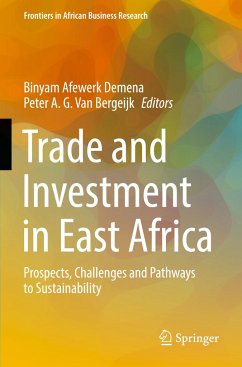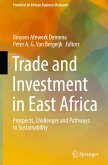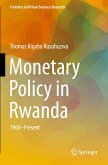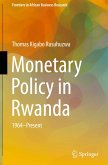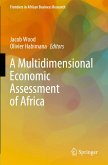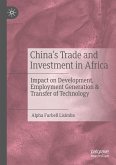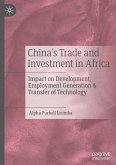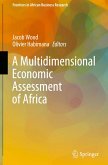This book provides a thorough understanding of the key policy debates on international trade and investment for development with a focus on the East African Community (EAC) to strengthen Member States' capacity to develop policies to promote their exports' competitiveness and diversification. Beyond Member States', the book serves as a base for a deeper understanding of the challenges, opportunities and requirements of the intra-continental trade agreement which is now in sight with the ratification of the Tripartite (EAC-COMESA-SADC) Free Trade Area that is critical in addressing key constraints to trade in the African continent. Moreover, the lessons from this edited volume may also extend to the challenges and opportunities of the African Continental Free Trade Area.
The book brings together a comprehensive overview and an evidence-based analysis that can be considered best practice in the region. The trade and investment policy analysis of constraints and opportunities aims to improve trade and competitiveness and covers macro- (economy-wide), meso- (sectoral) and micro- (firm or household) levels. This multi-level approach is crucial for understanding how current trade and investment policies limit competitiveness and diversification in order to identify more tangible policy action for overcoming such constraints. The individual contributors follow comprehensive applied empirical approaches, and each chapter generates knowledge needed to identify key challenges and opportunities focusing on research-led policy-relevant approaches that enable readers to better understand national, bilateral, and multilateral cooperation as well as policies for sustainable development in East Africa. The contributors know the EAC context very well as their engagement in policymaking goes beyond the context of the papers they are writing about. The individual chapters were developed as part of a research and capacity building programme under the aegis of ACP and EUthat we implemented in 2020-2022. The research project well fits into the Frontiers in African Business Research series as we have many African contributors.
The contributions matter to policymakers and academic circles. For students, the book serves as an excellent guide for understanding international trade and investment theories and gaining up-to-date knowledge on developments in the world economy and their effects on developing countries and SDGs. Trade policy researchers and students will be able to extend theories and empirical data to address new and emerging topics beyond the settings already covered in the book.
The book brings together a comprehensive overview and an evidence-based analysis that can be considered best practice in the region. The trade and investment policy analysis of constraints and opportunities aims to improve trade and competitiveness and covers macro- (economy-wide), meso- (sectoral) and micro- (firm or household) levels. This multi-level approach is crucial for understanding how current trade and investment policies limit competitiveness and diversification in order to identify more tangible policy action for overcoming such constraints. The individual contributors follow comprehensive applied empirical approaches, and each chapter generates knowledge needed to identify key challenges and opportunities focusing on research-led policy-relevant approaches that enable readers to better understand national, bilateral, and multilateral cooperation as well as policies for sustainable development in East Africa. The contributors know the EAC context very well as their engagement in policymaking goes beyond the context of the papers they are writing about. The individual chapters were developed as part of a research and capacity building programme under the aegis of ACP and EUthat we implemented in 2020-2022. The research project well fits into the Frontiers in African Business Research series as we have many African contributors.
The contributions matter to policymakers and academic circles. For students, the book serves as an excellent guide for understanding international trade and investment theories and gaining up-to-date knowledge on developments in the world economy and their effects on developing countries and SDGs. Trade policy researchers and students will be able to extend theories and empirical data to address new and emerging topics beyond the settings already covered in the book.

